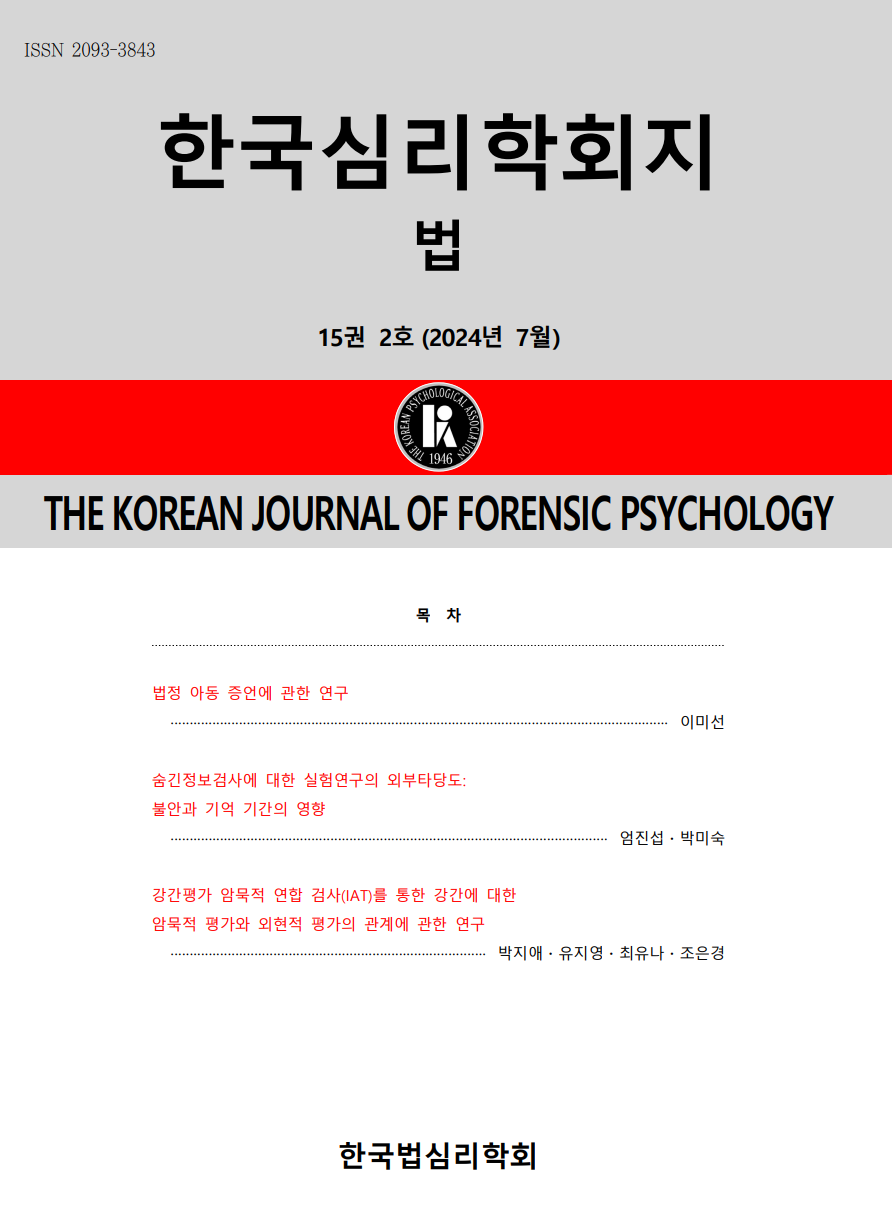 ISSN : 2093-3843
ISSN : 2093-3843
Cognitions of sexual crimes are key predictors of sexually aggressive behavior, yet prior studies have shown mixed results. This study aims to clarify the types and roles of cognitions involved in sexual crimes, focusing on attitudes toward rape. Attitudes were measured according to the traditional definition as positive or negative evaluations and examined through relationships with demographics, rape myths, and sexually aggressive behavior variables. A paper format ‘Rape Evaluation Implicit Association Test’ was developed to measure implicit attitudes in a pilot study, while explicit attitudes were assessed via self-reports on coercive and consensual sexual relationships. The study with 80 adults found that men had less negative implicit attitudes toward rape than women, with no significant gender differences in explicit attitudes. The only significant predictor of sexually aggressive behavior was the explicit attitude toward coercive sexual relationships. These findings discuss the significance and limitations of defining attitudes toward rape through evaluations.